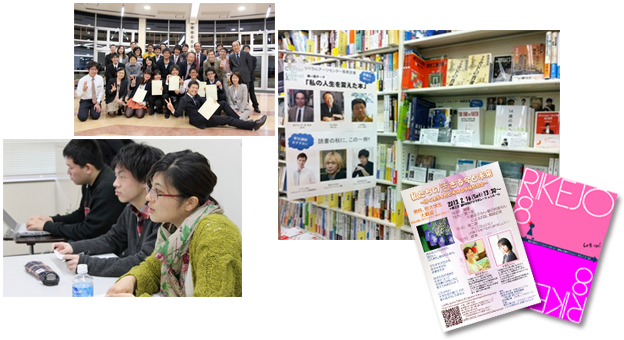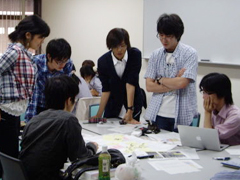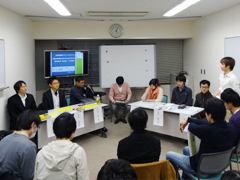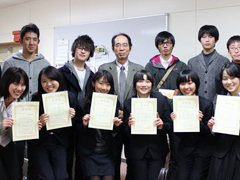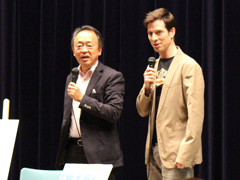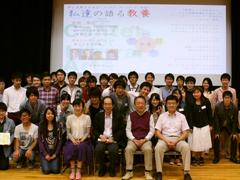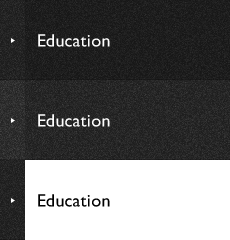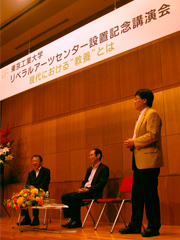
Commemorative lecture held on May 10, 2012
On May 10, 2012 a lecture commemorating the establishment of the Center for Liberal Arts was held. Twenty volunteer students participated in the planning and operation of the event. For them, the process of organizing the event was an opportunity to think and learn what it means to be truly educated. The experience inspired those students with new insights into the meaning of a liberal arts education.
"This is too precious to be a one-time experience," thought participants. "These experiences of learning what it means to be educated by doing should be repeated." Their awareness of the issues led to the launching of student projects. The director of the Center, Professor Toshio Kuwako, drew up a plan for future student projects, and they were in full swing by June 2012.
With the cooperation of faculty members, administrative staff and others, student projects continue to the present day. Through word of mouth, news about the projects has spread with past participants inviting new participants and now there are more than fifty students involved in various projects. Seventy percent are male and thirty percent are female. Students from various departments collaborate in the student projects.
. Any information published on this site will be valid in relation to Science Tokyo.


